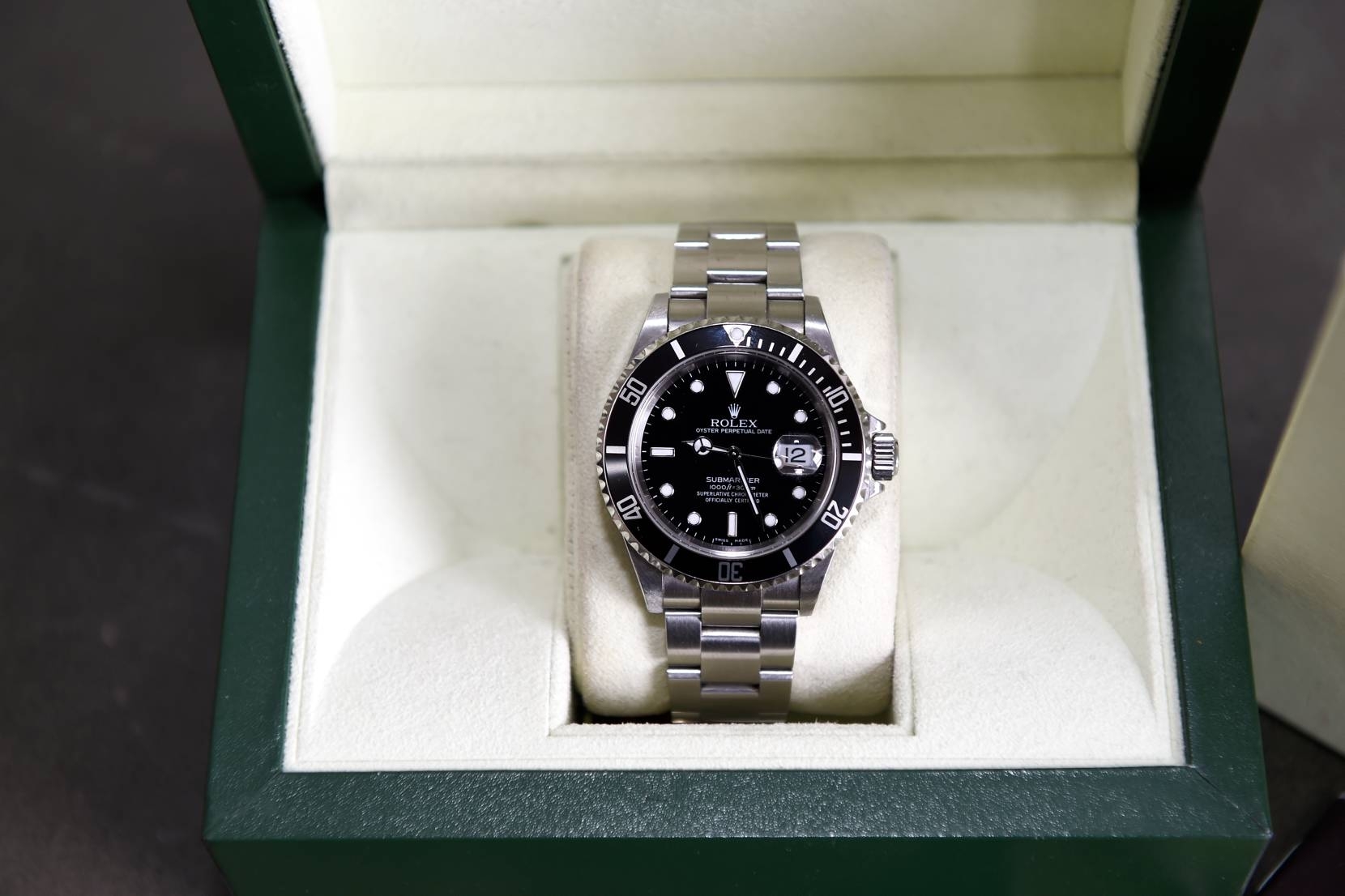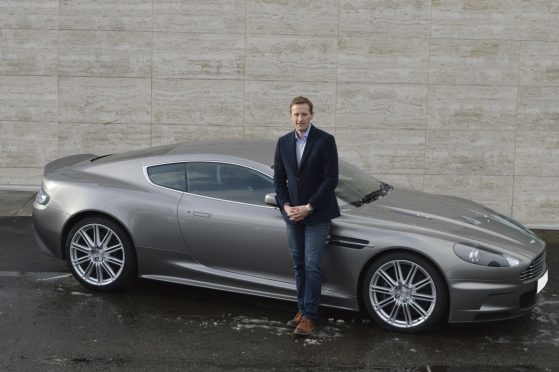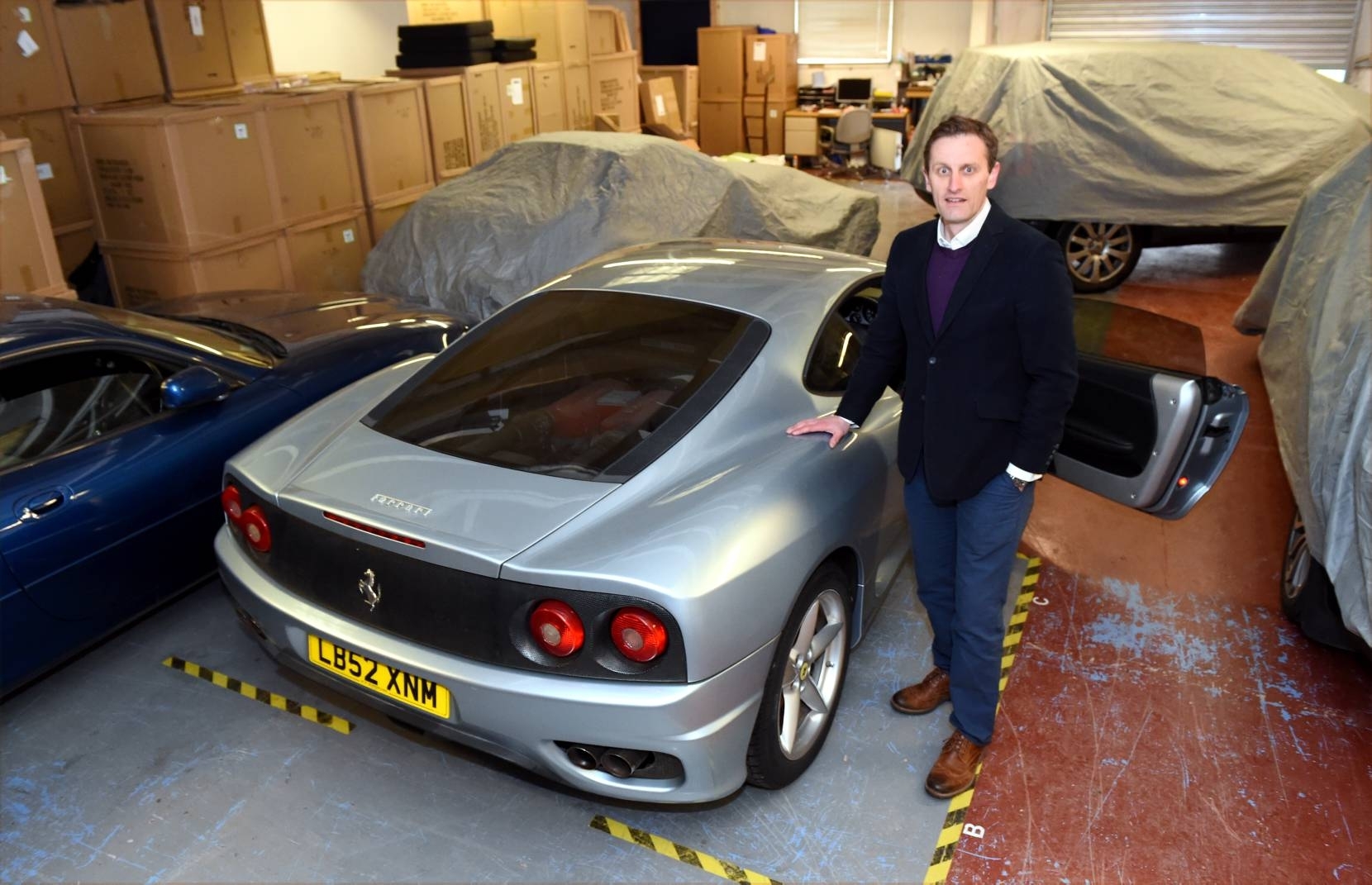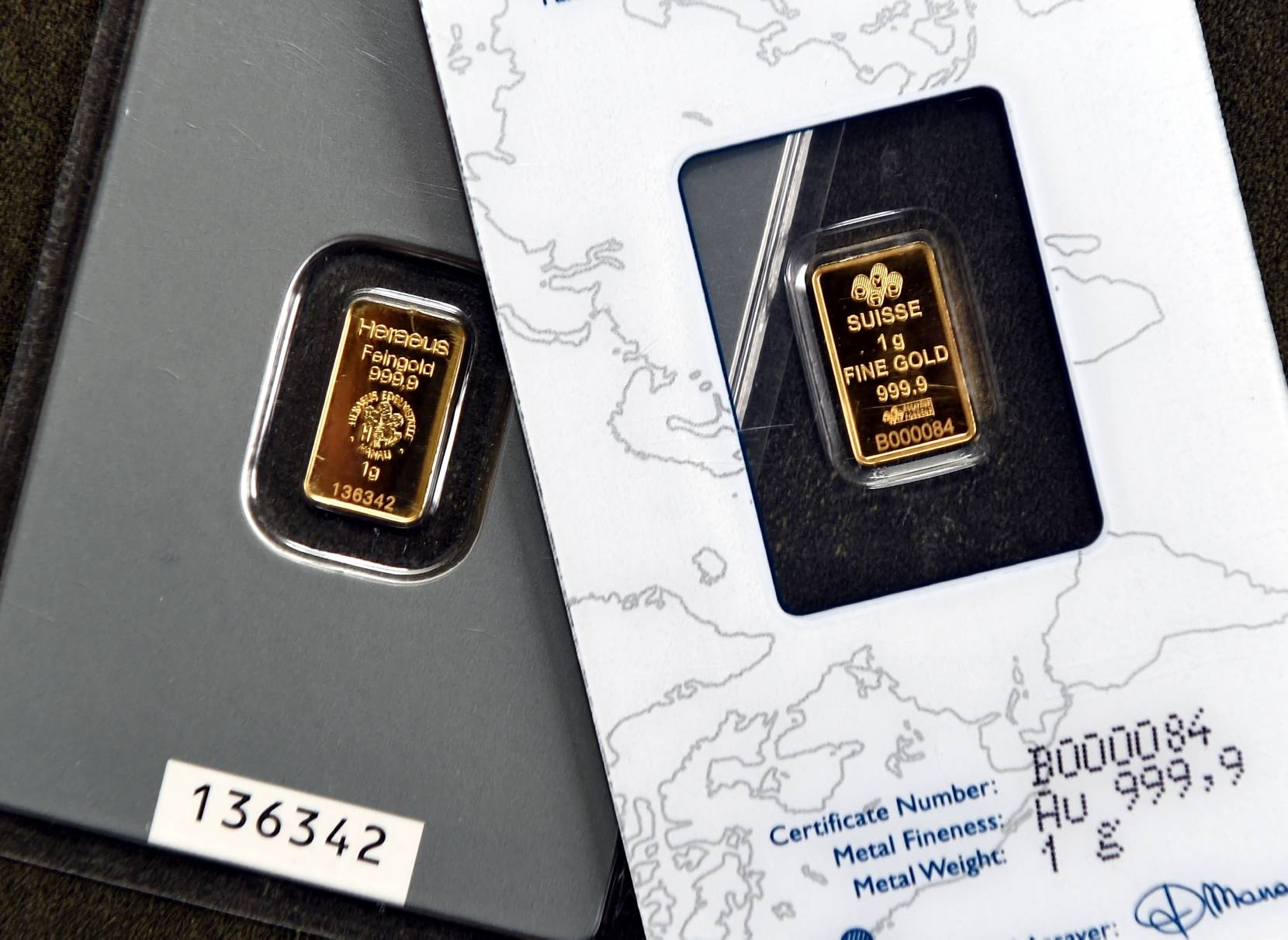The black prancing horse shines brightly in the midday sun atop the sleek, silver bonnet.
This is a car which stops people in their tracks and produces envy in those not lucky enough to be in the driving seat. This is a Ferrari, of course, something bought as a glitzy, in-your-face reward for hardworking folk and a symbol to others of how well they have done.
The proud owner stands alongside it and takes the keys from his pocket, remembering the feeling of putting his foot down and jetting off for adventures.
But he won’t be driving it again any time soon, because he is in need of some cash quick – and so is turning to pawn.
This week, it was revealed that the “posh pawn” market has started to take off in the Granite City as cash-strapped oil executives trade in expensive watches, jewellery and even cars as collateral for short-term loans.
North-east employees in their thousands have been made redundant since the oil downturn began, and many more are living with the worry of being left with no job in the near future.
There have been stories of people having to leave their families behind and take jobs in far-flung parts of the world to make ends meet and those who are turning to food banks to feed their families as they fight to keep up appearances and retain the Porsche in the driveway.
The posh pawn industry offers them a different route.
Business is so good in the north-east that one Scottish company specialising in high-end secured loans has set up shop in Europe’s energy capital. It is the latest step taken by director Neil Mitchinson, who established Edinburgh Asset Finance (EAF) three years ago after spotting “a gap in the market”.
He has a number of other businesses already and he says it was clear to him that there was a need for a service to help companies looking for cash fast.
“There was a need, particularly for professional people, and business owners, for raising short-term cash where they perhaps had assets but really had a need for some money,” he said.
“As I said, just short term, because they knew money was coming back or they knew they were due to be paid for something or were going to sell a house or an asset to release some money. But where money was needed quickly, there wasn’t a service there.
“I’ve always had my own businesses and I’ve got a lot of friends with businesses as well and, through discussing things with them, two of them said they would really need this service. I looked into it and there was nobody offering anything similar in Scotland.
“There were a couple of business in England at that time, but not doing exactly what we do, which is office-based and by appointment only. It offers a professional service to professional people.”
Pawning is by no means a new concept. For years, people have been turning to high-street pawnshops to swap prized possessions for some fast funds. But now it seems even the rich people have to find alternative means to pay the bills.
The people coming to businesses like EAF aren’t just after £100 to help pay the electricity bill, there are big numbers involved and very expensive and often rare assets to be pawned.

Top of the list of items in EAF’s warehouse is jewellery, including diamond rings, engagement rings and bracelets. Watches such as Rolex and Cartier comes in at number two, and third is cars. At any one time, Neil can have Ferraris, Porsches and Range Rovers in his possession, as well as other, more unusual, items.
“Recently, we had a whisky collection which somebody pawned because there is a lot of value in them,” he said.
“They seem to attract quite a lot of money at auction. I’ve also got some interesting pieces of art. I’ve got a couple of Vettrianos in the vault right now, but also some Scottish colourists. People have an eye for art and they don’t want to release it because, in many cases, it is still an appreciating asset. It works quite well in releasing the cash in the short term.”
The reasons for what brings people to businesses like EAF seems to be ever expanding, with the common theme that they all need cash in the short term. Neil said that unexpected tax bills come up quite a lot, when they have not been budgeted into people’s finances. Business owners struggling to pay salaries at the end of the month is another reason.
“Staff are the most important thing for any business. When they have not been paid quickly enough, business owners need to come up with short-term funds to make sure their staff get paid before perhaps bills are given to them. That’s a very common one.
“Divorce is sadly another common reason for people contacting us. We’ve seen quite a lot of incidences over the years where maybe one partner is not the breadwinner and not earning and then, until there is a settlement, that person doesn’t have an income and yet still has the trinkets or the assets from the better times of the marriage. They are able to bring those into play until there is some finality to the marriage.”
Whatever the reason, it is no doubt a highly emotional time for those considering parting, even in the short term, with something they hold dear – be it the Ferrari they bought themselves as a treat or the diamond bracelet passed down through generations.
For many, pawning is the easiest and fastest way for them to get to their end goal. But for others, when there is not the certainty there that you will be able to get it back, it is a much bleaker picture, one that is painted with desperation as they are forced to pawn a treasured prize.
Neil, however, has had a different experience. He said that by the time they reach EAF they have “got over that part”.
“It can be slightly emotional, but it’s more a pragmatic approach,” he said.
“They have some financial shortfall and they have made up their mind to release the value of this asset, rather than have to go to the bank or potentially face worse consequences by not repaying the taxman, or whatever the situation is.
“People are not desperately emotional when they are here. It tends to feel very much like a professional transaction, as if you were going into a bank or getting advice from a financial adviser.
“Pawning allows them to keep a hold of what they have. It’s much more professional and matter of fact than certainly the emotional looking over your shoulder at what you are leaving behind idea. I think it’s because everyone at least has the intention of coming back. I don’t want to deal with people who are looking to sell things; that’s a different service altogether. We don’t buy and sell.
“In reality, very few customers fail to redeem it at some point during the loan period. Our statistics show that 4% of people don’t redeem, which is good. I don’t want to separate people from things that they prize and want to keep a hold of.”
He said it is the perception of the seedy pawnshop where you go in the most desperate of times that makes his job of promoting his service that more difficult. While he speaks proactively to lawyers, accountants, insolvency practitioners and financial advisers to try and make them aware of the service, he said it is a difficult message to get out.
“People’s perception of a pawnbroker, particularly in Scotland, is quite stigmatised,” he said.
“The impression is this sort of person who is trying to get your last pound or get your last possession and give you a pound for it. It really isn’t a very positive image, which is why we’ve purposefully stayed away from that kind of thing.
“It’s asset finance for professional and middle-class people who would never have considered using a pawnshop. It’s difficult. Once people get the idea of pawnbroker into their head, I still think there is a slightly negative connotation with it. It’s a difficult message to get out there.”
Similarly, the idea of someone being a pawnbroker must raise a few eyebrows, but Neil said that, overall, the reaction to his business has been positive, especially among professional people.
“They get it,” is how he put it simply. Once they understand what it is and how it works, it changes their perception, he added.
“I certainly don’t feel any stigma at all in the way that we operate and have never been made to feel that way by any customer or anybody who has come in.
“I know that the traditional view of a pawnbroker is not a positive one. This is why the business has been set up completely differently offering a professional service to financially savvy people who have a short term cash need. I am never dealing with people who are down to their last meal – my customers tend to have a pressing financial consideration and are using their luxury assets in a smart way to assist them at that time.”
He said selling a car and then buying another similar one a month or two later would be a far more expensive option than pawning.
“Selling a prized piece of jewellery or watch with high sentimental value is simply not an option for many. This service allows them to make these assets work harder for them.”
And he rejected claims that people with businesses like his are vultures.
He added: “Our business offers a very valid and quick financial option to individuals who need short term funds – often allowing them to stay in control of their own finances.”
“I suppose there might be the odd raised eyebrow, but, on the whole, it is a professional service for professional people and I think a lot of people get that.
“Things like the Posh Pawn programme definitely help, too. It has made people look around at this sort of service as an alternative to more-traditional forms of lending.”
HOW IT WORKS
- EAF offers seven-month loans from £1,000 to £250,000, with interest rates typically ranging from 4% to 6%.
- A trade value is applied to any assets being pawned – effectively a value that EAF could sell or auction the item for.
- The loan offered is roughly 60% of that value. For example, if a Rolex watch has a trade value of £3,000, EAF will loan around £2,000.
- For that size of loan, the interest rate would typically be around 5%, so £100 per month.
- At the end of the seven months, the customer can pay the £2,700 which is due; they can repay just the interest and roll for another seven months for no financial penalty, or they are completely entitled to walk away completely and EAF is not allowed to pursue them.
- Any items not redeemed have to be sold publicly. If the £3,000 Rolex sells for that price, EAF takes back its loan plus interest, £2,700, plus any costs incurred to sell the item. Any surplus goes back to the customer.


